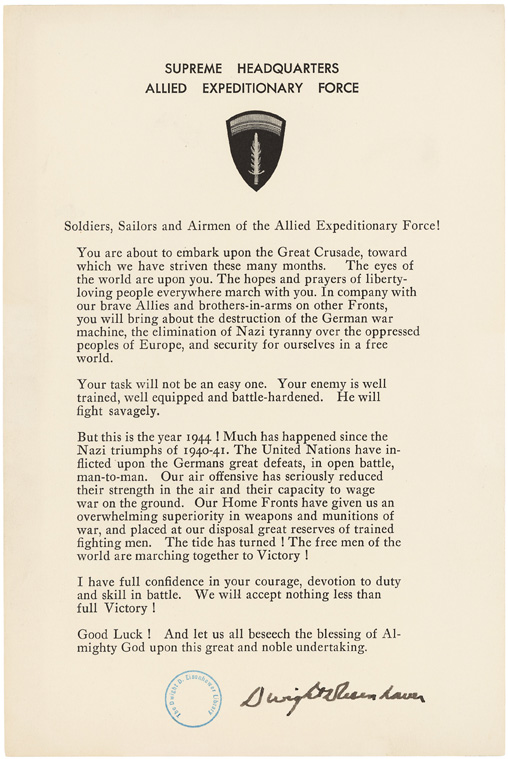D-day is the term for a secret date on which a military operation is to begin. Military leaders may speak of D-days when they plan operations. Such terms as D-plus-3 (three days after the initial attack) and H-hour (the hour of an attack) are used to plan the sequence of events. The term D-day became widely used during World War II (1939-1945), when it defined dates set for Allied landings on enemy-held coasts.
Loading the player...Invasion of France
The most famous D-Day is June 6, 1944, when the Allies invaded Normandy, in northwestern France. That D-Day marked the largest seaborne invasion in history. The code name for the Allied invasion was Operation Overlord. General Dwight D. Eisenhower of the United States commanded it. At the time of the invasion, Nazi Germany controlled France and most of western Europe. Early on the morning of June 6, about 23,000 American and British troops dropped by parachute and glider into Normandy, while more than 130,000 Allied troops crossed the English Channel in boats from bases in southern England. Allied warplanes riddled the invasion area with bombs and gunfire, while warships bombarded the Normandy beaches. United States soldiers then landed at beaches code-named Omaha and Utah. British soldiers landed at Gold and Sword beaches, and Canadian troops landed at Juno Beach.

About 70,000 German soldiers put up fierce resistance. The invading Allies met heavy machine gun and rifle fire, artillery fire, land mines, tanks, barbed wire, and fortified bunkers. Still, by the end of the day, the Allies had secured all five beaches, and Allied soldiers and supplies were pouring ashore. D-Day was merely the first day of the much larger Battle of Normandy, which dragged on for two months.
The Allied success on D-Day came at a significant cost. In the April and May operations that paved the way for D-Day, the Allies suffered nearly 12,000 casualties and lost more than 2,000 aircraft. On D-Day itself, more than 10,000 Allied soldiers, sailors, and aviators were killed, were wounded, or went missing. German losses were slightly less.
